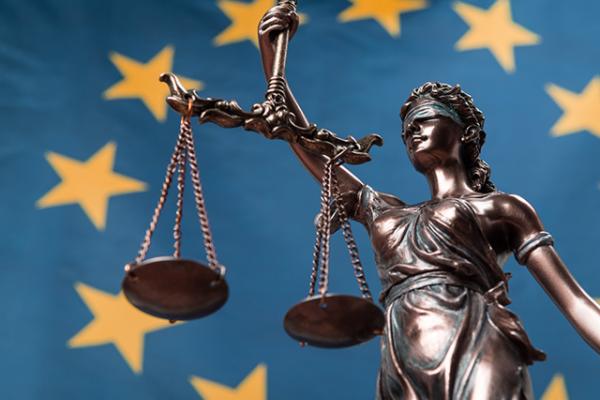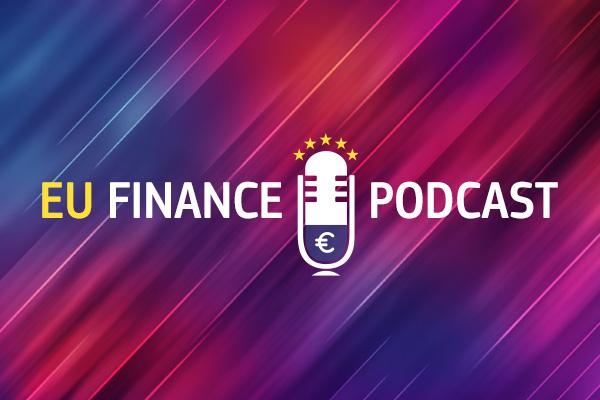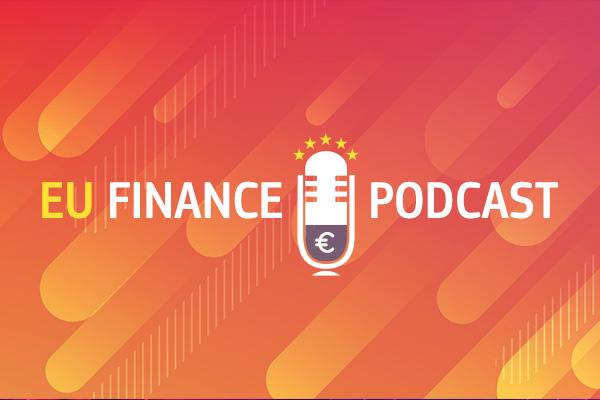What are sanctions (restrictive measures)
Sanctions are an essential tool in the EU’s common foreign and security policy (CFSP), through which it can intervene where necessary to prevent conflict or respond to current or emerging crises.Although they are called ‘sanctions’, EU restrictive measures are not punitive. They are intended to bring about a change in bad or harmful policiesor activities by targeting the non-EU countries, including organisations and individuals, responsible.
The EU has over 40 different sanctions regimes in place. Some are mandated by the United Nations Security Council, while others are adopted autonomously by the EU.
Decisions on the adoption, renewal, or lifting of sanctions regimes are taken by the Council of the European Union, on the basis of proposals from the High Representative of the Union for Foreign Affairs and Security Policy. The European Commission, together with the High Representative, make joint proposals of sanctions to the Council for adoption at unanimity. It then becomes applicable EU law when published in the Official Journal. In addition, as guardian of the treaties, the Commission plays a vital role in overseeing sanctions implementation by Member States.
The EU applies sanctions to implement UN Security Council Resolutions or to further the objectives of the CFSP, namely
- promoting international peace and security
- preventing conflicts
- supporting democracy, the rule of law and human rights and
- defending the principles of international law
EU sanctions can target governments of non-EU countries, as well as companies, groups, organisations, or individuals through the following measures
- arms embargoes
- restrictions on admission (travel bans)
- asset freezes
- other economic measures such as restrictions on imports and exports
EU sanctions are carefully targeted, and designed to be proportionate to the objectives they seek to achieve. As such, they are aimed at those responsible for the policies or actions the EU wants to influence, while reducing as much as possible any unintended consequences.
As they are a foreign policy tool, EU sanctions inherently apply in non-EU countries – however, only within an EU jurisdiction. In other words, the obligations imposed are binding on EU nationals or people located in the EU or doing business here.
The task of conducting investigations into potential non-compliance cases falls to the Member States and their national competent authorities. Member States must have effective, proportionate and dissuasive penalties in place, and enforce them when EU sanctions are breached.
Role of the European Commission
The Directorate-General for Financial Stability, Financial Services and Capital Markets Union (DG FISMA) prepares proposals for Regulations on sanctions for adoption by the Council of the European Union, and represents the European Commission in sanctions-related discussions with Member States at the Council Working Party of Foreign Relations Counsellors. DG FISMA is also responsible for transposing certain United Nations sanctions into EU law.
DG FISMA is also in charge of monitoring, on behalf of the European Commission, the implementation and enforcement of EU sanctions across all Member States. DG FISMA is increasingly supporting Member States in their efforts to apply sanctions, by answering questions of interpretation raised by national competent authorities, as well as economic and humanitarian operators.
In addition, DG FISMA is dedicating increasing efforts to strengthening the application of EU sanctions even further, and to enhancing the resilience of the EU to extra-territorial sanctions adopted by countries outside the EU (see also the EU Blocking Statute). This is reflected in the mission letter of Commissioner Mairead McGuinness in the Commission’s Work Programme 2020 and in the Commission Communication of 19 January 2021: “The European economic and financial system: fostering openness, strength and resilience”.
Role of national competent authorities for sanctions
Member States are responsible for the implementation and enforcement of EU sanctions, as well as identifying breaches and imposing penalties. The Commission monitors the correct and uniform implementation of EU sanctions and provides guidance to Member States.
The contact details of the relevant competent authorities of the Member States can be found in the document below.
- 13 DECEMBER 2024
Sanctions resources
The EU sanctions map provides comprehensive details of all EU sanctions regimes and their corresponding legal acts, including those regimes adopted by the UN Security Council and transposed at EU level.
The consolidated list of individuals, groups and organisations subject to EU financial sanctions, which DG FISMA manages and updates whenever necessary, reflects the officially adopted texts published in the Official Journal of the EU. You can also download a PDF version of the consolidated list of financial sanctions.

Sharing of information about EU sanctions violations can contribute to the success of ongoing investigations in EU Member States and increase the effectiveness of EU sanctions.
The EU sanctions tool aims to help EU companies determine whether EU sanctions apply to their exports, imports and business with Iran. By providing an easy-to-use compliance assessment, the tool is designed as a first point of reference for EU companies at an early stage of their business engagement in Iran.
EUR-Lex is the online gateway to EU Law. It provides the official and most comprehensive access to EU legal documents, including legal acts adopted by the Council of the EU in the area of sanctions and published in the Official Journal of the EU. EUR-lex is available in all of the EU’s 24 official languages and is updated daily.
Guidance and advisories
- 29 November 2023Guidance note - Firewalls (Russia)
- 18 October 2023List - Economically critical goods (Russia)
- 12 October 2023Guidance note - Maritime oil industry
- 22 September 2023List - Common high priority items (Russia)
- 27 July 2023Factsheet - Accessing EU financial services as a non-profit organisation
- 16 May 2023Frequently asked questions - Syria
- 30 June 2022Guidance note - Humanitarian aid
- 26 February 2022Frequently asked questions - Sanctions
Frequently asked questions: Restrictive measures (sanctions)
- 23 February 2022 - currentFrequently asked questions - Sanctions against Russia
- 13 August 2021Guidance note & Statement - Humanitarian aid to fight the COVID-19
- Guidance note on the provision of humanitarian aid to fight the COVID-19 pandemic in certain environments subject to EU sanctions (clarification on Covid-19 vaccines and therapeutics, EU counter-terrorism sanctions, Iran, Nicaragua, Syria, Venezuela)
- Statement - Sanctions: Commission issues additional guidance on providing COVID-19-related humanitarian aid in sanctioned environments
- Guidance note on the provision of humanitarian aid to fight the COVID-19 pandemic in certain environments subject to EU sanctions (clarification on Covid-19 vaccines and therapeutics, EU counter-terrorism sanctions, Iran, Nicaragua, Syria, Venezuela)
- 8 June 2021Opinion - Individual financial sanctions (Russia)
- 2 June 2021Opinion - Central African Republic
- 17 December 2020Guidance note - EU global human rights sanctions regime
- 16 November 2020Guidance note - Humanitarian aid to fight the COVID-19
- Guidance note on the provision of humanitarian aid to fight the COVID-19 pandemic in certain environments subject to EU sanctions (Iran, Nicaragua, Syria, Venezuela)
This guidance note has been replaced by the guidance note of 13 August 2021
- Press release on the guidance note on the provision of humanitarian aid to fight the COVID-19 pandemic in certain environments subject to EU sanctions
- Guidance note on the provision of humanitarian aid to fight the COVID-19 pandemic in certain environments subject to EU sanctions (Iran, Nicaragua, Syria, Venezuela)
- 9 Octobre 2020Guidance note - Humanitarian aid to fight the COVID-19
- Guidance note on the provision of humanitarian aid to fight the COVID-19 pandemic in certain environments subject to EU sanctions (Iran, Syria, Venezuela)
This guidance note has been replaced by the guidance note of 13 August 2021
- Statement - Sanctions: Commission expands Guidance on COVID-19-related humanitarian aid in sanctioned environments
- Guidance note on the provision of humanitarian aid to fight the COVID-19 pandemic in certain environments subject to EU sanctions (Iran, Syria, Venezuela)
- 19 June 2020Opinion - Individual financial sanctions (control, and services and labour as economic resources)
- 3 June 2020Non official guide - Humanitarian funds Syria
- 11 May 2020Guidance note - Humanitarian aid to fight the COVID-19 (Syria)
- Guidance note on the provision of humanitarian aid to fight the COVID-19 pandemic in certain environments subject to EU sanctions (Syria)
This guidance note has been replaced by the guidance note of 13 August 2021
- Questions and answers on the provision of humanitarian aid to fight the COVID-19 pandemic in Syria
- Press release on the guidance note on the provision of humanitarian aid to fight the COVID-19 pandemic in certain environments subject to EU sanctions
- Guidance note on the provision of humanitarian aid to fight the COVID-19 pandemic in certain environments subject to EU sanctions (Syria)
- Frequently asked questions
- 8 November 2019Opinion - National asset freezes
- 17 October 2019Opinion - Russia economic sanctions
- 29 August 2019Opinion - Derogations freezing funds
- 4 July 2019Opinion - Scope of export ban (Russia)
- 31 January 2019Guidance note - Import and export ban of luxury goods
- 17 October 2017Opinion – Individual financial sanctions (making funds or economic resources available) (Russia)
- 25 August 2017Guidance note - Russia aconomic sanctions
- 1 September 2017Frequently asked questions - Syria
- 13 February 2017Opinion – Russia economic sanctions
More about sanctions

The Commission adopted guidance and a number of tools to assist humanitarian operators in delivering assistance in compliance with EU sanctions.

The European Union’s blocking statute (Council Regulation (EC) No 2271/96 ) protects EU operators from the extra-territorial application of non-EU country laws.



